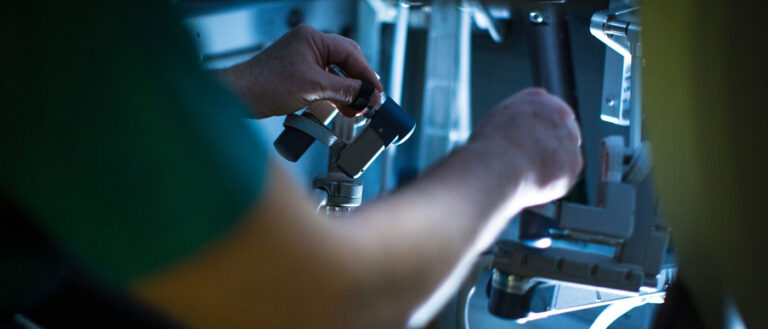
Researchers awarded five-year, $3.7M grant from National Institutes of Health, National Cancer Institute
Researchers at Case Western Reserve University and Vanderbilt University are pioneering a new approach to prostate cancer surgery by combining advanced robotics and "low-field" MRI technology.
The research aims to allow highly accurate, patient-tailored prostate cancer surgeries without the need for traditional incisions. This innovative research marks a major step in developing minimally invasive treatments for prostate cancer, with the potential to improve both safety and efficiency for patients.
The project is being funded by a new five-year, $3.7 million grant from the National Cancer Institute, part of the National Institutes of Health (NIH).
William Grissom, the Medtronic Professor of Biomedical Discovery and Innovation at the Case Western Reserve School of Medicine and Case School of Engineering, and Robert Webster, the Richard A. Schroeder Professor of Mechanical Engineering at Vanderbilt University, are leading the collaboration.
Together, they will work to adapt a robot from Virtuoso Surgical Inc. (a Vanderbilt startup company Webster founded) to remove prostate cancer lesions. They will integrate the robot with Promaxo Inc.'s low-field MRI scanner, which, unlike transrectal ultrasound, can image the prostate without blocking surgical access to the lesions.
"Our goal is to eliminate the many complications associated with whole-gland prostate removal to treat prostate cancer," Grissom said. "Targeted removal of localized prostate lesions could alleviate these complications but is challenging because cancerous tissue can appear identical to healthy tissue in endoscopic images, making accurate surgery difficult."
Webster added, "The new robot will be able to carefully guide surgical instruments directly to prostate cancer lesions identified in high-field MR images. This will enable surgeons to focus treatment on specific cancerous lesions."
In addition to securing the NIH grant, Grissom was recently appointed the Case Western Reserve School of Medicine's first Medtronic Professorship of Biomedical Discovery and Innovation for his transformative work in the field.






